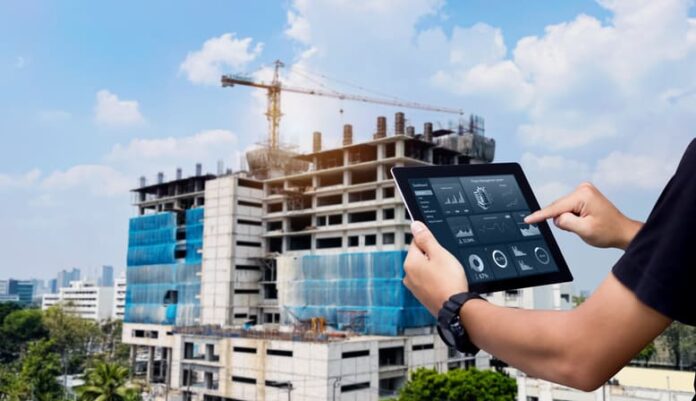In today’s fast-paced construction industry, the integration of technology into daily operations is not just beneficial—it’s essential for staying competitive and efficient. One of the most impactful innovations has been the integration of the Internet of Things (IoT) with construction scheduling software. This combination not only enhances project monitoring and management but also brings a new level of precision and efficiency to construction projects.
The Synergy of IoT and Construction Scheduling Software
Construction scheduling software has traditionally been used to plan and track project timelines and resource allocation. However, by integrating IoT technology, these systems now offer real-time data directly from the construction site. This integration allows project managers to see what’s happening in real time, adjust schedules instantly based on ground realities, and manage resources more effectively.
The real power of combining IoT with construction scheduling software lies in the continuous stream of data that IoT devices provide. Sensors can monitor material conditions, weather, equipment usage, and workforce locations. This data feeds directly into the scheduling software, providing a dynamic, up-to-date picture of every aspect of the project. This setup not only improves accuracy in project monitoring but also enhances decision-making, ensuring projects stay on track and within budget.
Real-Time Data for Proactive Project Management
Instant Updates: With IoT devices strategically placed throughout a construction site, data is relayed instantaneously to the construction scheduling software. This means any deviations from the plan are noticed immediately, allowing for quick corrections. This instant feedback loop significantly reduces the response time to potential issues, limiting costly delays.
Predictive Maintenance and Resource Optimization: IoT-enabled construction scheduling software can predict when equipment might fail or when materials are running low. This predictive insight allows for timely maintenance and reordering of resources, thereby minimizing downtime and improving productivity.
Enhanced Safety Measures: Safety on the construction site is paramount. IoT devices can monitor conditions and send alerts through the construction scheduling software when potential hazards arise, such as unsafe environmental conditions or malfunctioning equipment. This integration not only protects the workforce but also reduces the likelihood of costly accidents and associated delays.
Challenges and Solutions in Integration
While the benefits are clear, integrating IoT with construction scheduling software does present challenges. The complexity of setting up and managing IoT devices, concerns about data security, and the need for specialized training are some of the obstacles that firms may face.
Overcoming Technical Challenges: Choosing the right technology partners and investing in robust, user-friendly platforms can mitigate many of the technical challenges. Opt for solutions that offer seamless integration capabilities and strong customer support.
Addressing Security Concerns: With increased data flow comes the increased responsibility of securing that data. Implementing strong cybersecurity measures and choosing IoT devices and software with built-in security features are crucial steps in safeguarding project data.
Training and Adaptation: To fully capitalize on the benefits of IoT-integrated construction scheduling software, teams need proper training. Investing in comprehensive training programs ensures that all stakeholders understand how to use the new tools effectively.
Conclusion
The integration of IoT technology with construction scheduling software represents a significant advancement in the way construction projects are managed and monitored. This powerful combination not only brings real-time data and insights to the fingertips of project managers but also greatly enhances the precision, efficiency, and safety of construction operations. As the construction industry continues to evolve, the role of advanced technologies like construction scheduling software integrated with IoT will become increasingly important, defining new standards for success in the field.



























![“Does Everyone Hear Me OK?”: How to Lead Virtual Teams Effectively iStock-1438575049 (1) [Converted]](https://www.europeanbusinessreview.com/wp-content/uploads/2024/11/iStock-1438575049-1-Converted-100x70.jpg)




